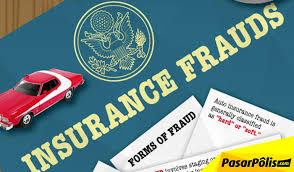3 Characteristics of Fraud Insurance Companies
More and more consumers who take health insurance plans have led to the proliferation of scam health insurance providers. These providers often target new retirees and small business owners and parents, who cannot negotiate better prices with legitimate insurance companies. Be careful before investing in any health policy. Read on to get ideas about 3 ways in which your health insurance company can cheat you.
 |
| 3 Characteristics of Fraud Insurance Companies |
1. Failure to pay claims
Usually fraud health insurance agents register a large number of people quickly by offering them profitable offers. These insurance providers still pay small premiums and medical claims, but if there are a large enough number of claims or regulators who arrest them, these illegal companies disappear as if they never existed.
So, be careful if you receive a delayed payment or your service provider offers a false reason for failure to make a payment. If you have registered for this illegal plan, you may be responsible for your employee's medical bills too.
2. The health plan is not licensed
If the company where you purchased your health care policy is not licensed by the State Insurance Commissioner, you can be in trouble. If all insurance regulation protection does not apply to your service provider, then the company may be fake. In this case your service provider deceives you by selling unlicensed health packages.
Insurance agents are not allowed to sell ERISA or legitimate union plans as regulated by federal law. So, if your insurance agent tries to trick you into selling an "ERISA" or "combined" package, report it to your country's insurance department.
3. Unusual coverage offered at lower prices
If you are offered unusual coverage regardless of your health condition and it is also at a lower level and far more beneficial compared to other insurance companies, it's time for you to also press the panic button. Don't be fooled by a profitable offer, or you can be taken up. 'Scamsters' aims to collect large amounts as early as possible so they try to sell the maximum amount of policy at attractive prices.